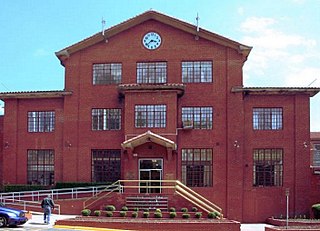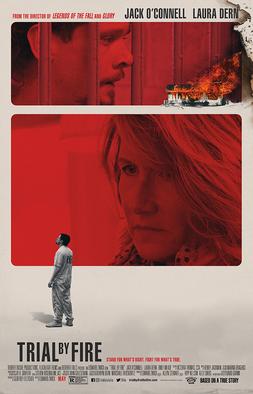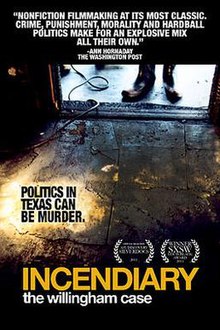
Erle Stanley Gardner was an American author and lawyer, best known for the Perry Mason series of legal detective stories. Gardner also wrote numerous other novels and shorter pieces as well as a series of nonfiction books, mostly narrations of his travels through Baja California and other regions in Mexico.

Cameron Todd Willingham was an American man who was convicted and executed for the murder of his three young children by arson at the family home in Corsicana, Texas, on December 23, 1991. Since Willingham's 2004 execution, significant controversy has arisen over the legitimacy of the guilty verdict and the interpretation of the evidence that was used to convict him of arson and murder.

James Richard Perry is an American politician who served as the 14th United States secretary of energy from 2017 to 2019 in the administration of Donald Trump. He previously served as the 47th governor of Texas from 2000 to 2015 and ran unsuccessfully for the Republican nomination for President of the United States in the 2012 and 2016 elections.

Capital punishment is a legal penalty in the U.S. state of Texas for murder, and participation in a felony resulting in death if committed by an individual who has attained or is over the age of 18.
South by Southwest (SXSW) is an annual conglomeration of parallel film, interactive media, and music festivals and conferences organized jointly that take place in mid-March in Austin, Texas. It began in 1987 and has continued growing in both scope and size every year. In 2017, the conference lasted for 10 days with the interactive track lasting for five days, music for seven days, and film for nine days. There was no in-person event in 2020 and 2021 as a result of the COVID-19 pandemic in Austin; in both years there was a smaller online event instead.

The Full Frame Documentary Film Festival is an annual international event dedicated to the theatrical exhibition of non-fiction cinema founded by Nancy Buirski, a Pulitzer Prize-winning photo editor of The New York Times and documentary filmmaker.
Wrongful execution is a miscarriage of justice occurring when an innocent person is put to death by capital punishment. Opponents of capital punishment often cite cases of wrongful execution as arguments, while proponents argue that innocence concerns the credibility of the justice system as a whole and does not solely undermine the use of the death penalty.
Bradley Beesley is an American Independent film and video director, producer and cinematographer. Born in Oklahoma and based in Austin, Texas, he "has made a cinematic career documenting oddball Americana, strange sub-cultures and homegrown rock stars."

The Texas Music Office (TMO) is a state-funded business promotion office and information clearinghouse for the Texas music industry. It is headquartered in the State Insurance Building in Austin.

Bi the Way is a 2008 documentary film about bisexuality in the United States. It had its world premiere at the SXSW Film Festival in Austin, Texas. The film has aired at film festivals throughout the United States, Canada, the United Kingdom, Portugal, Turkey, Greece, Australia, Brazil, and Taiwan, including at Silverdocs Film Festival, Outfest, Newfest, !f Istanbul, and Rio de Janeiro Film Festival. It was aired on the Logo Network in summer 2009.

David Elliot Grann is an American journalist, a staff writer for The New Yorker, and author.
The Texas Forensic Science Commission (FSC) is a state agency of Texas, headquartered on the grounds of the College of Criminal Justice of Sam Houston State University in Huntsville. The commission investigates complaints about misuse or neglect regarding crime laboratories.
Keirda Bahruth is an American filmmaker based in Los Angeles, CA. She began her career working on Music Videos and Commercials before a move to New York teamed her up with legendary Saturday Night Live director James Signorelli, famous for his commercial parody sketches. As Signorelli's assistant, she began shooting behind-the-scenes footage of life at SNL for the show's 25th Anniversary Special, which gave her complete access to the inner workings of the show. After three full seasons at SNL, Bahruth returned to Los Angeles in 2001 and joined the nascent world of reality television. She has worked as a director and producer on shows for the Discovery Channel, E!, Fox, NBC/Universal, The WB and BET.

Rick Perry, having served as the Lieutenant Governor of Texas for one year, succeeded to the office of Governor of Texas on December 21, 2000, when Governor George W. Bush resigned to prepare for his presidential inauguration. Perry became the first Texas A&M graduate to serve as governor. Perry was a member of the Republican Governors Association, the National Governors Association, the Western Governors Association, and the Southern Governors Association. Perry served as Chairman of the Republican Governors Association in 2008 and 2011.

Michael Morton is an American who was wrongfully convicted in 1987 in a Williamson County, Texas court of the 1986 murder of his wife Christine Morton. He spent nearly 25 years in prison before he was exonerated by DNA evidence which supported his claim of innocence and pointed to the crime being committed by another individual. Morton was released from prison on October 4, 2011, and another man, Mark Alan Norwood, was convicted of the murder in 2013. The prosecutor in the case, Ken Anderson, was convicted of contempt of court for withholding evidence after the judge had ordered its release to the defense.
James Paul Grigson Jr., nicknamed "Dr. Death" by some press accounts, was a Texas forensic psychiatrist who testified in 167 capital trials, nearly all of which resulted in death sentences. He was exposed as a charlatan and expelled by the American Psychiatric Association and the Texas Society of Psychiatric Physicians in 1995 for unethical conduct.
Gerald "Jerry" Hurst was an American chemist and fire investigator. Before becoming noted for arson investigations, Hurst designed explosives for warfare, invented a binary explosive device known as Kinepak and developed an improved chemical compound to create Liquid Paper. He also devised an explosive called Astrolite as well as the Mylar balloon.

Tugg Inc. was a film-based collective action and crowdsourcing platform that enabled individuals to create film screenings at their local cinema. Tugg ceased operations in January 2020.

Trial by Fire is a 2018 American biographical drama film directed by Edward Zwick. The story is based upon David Grann's article "Trial by Fire" that appeared in The New Yorker in 2009 about case Willingham v. State of Texas. The film stars Jack O'Connell, Laura Dern, Emily Meade, Jeff Perry and Jade Pettyjohn.












